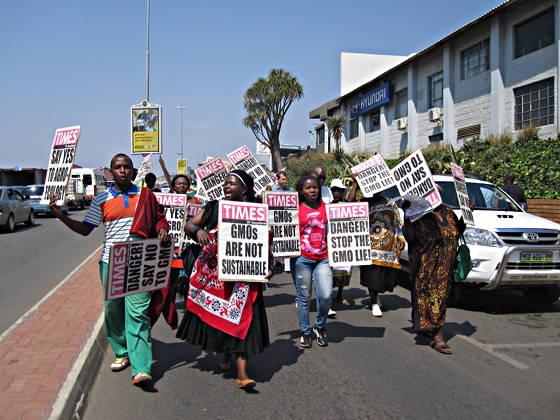Latest Resources

9 July 2020
COVID-19: Food distribution and health support to informal settlements
Click here to read about the Ivory Park #COVID-19 Campaign relief initiative The Ubuntu Project COVID-19 SA lockdown regulations put strain on the livelihoods of vulnerable communities, and loss of income meant many people were unable to buy food. In the early stage of level 5 lockdown, families and small-scale farmers were cut off from […]

8 May 2020
Towards a democratised and recalibrated food system in South Africa
ACB’S Stephen Greenberg’s op-ed urging for a shift to localisation and agroecology The Covid-19 crisis has exposed the stark inequalities that persist in our society. Vast disparities in access to health care, food, shelter, personal safety, water, transport and communications have been laid bare. Aside from imposing a lockdown, the South African government has been […]

20 March 2020
The Monoculture effect and COVID-19
An ACB statement on Human Rights Day, 21 March The COVID-19 outbreak illustrates the complex interactions between deforestation, reduced biological diversity, ecosystem destruction, and human health and safety, in large part driven by the globalised agricultural and food system. Further, with the threats posed by climate change, we can expect greater exposure to existing and […]

28 March 2019
Cyclone Idai’s warning – Shift to agroecological systems that work with nature or suffer more dev...
Ranked as one of the worst tropical storms on record to hit Africa, Cyclone Idai made landfall in Beira on Thursday 15 March, before lacerating its way across central Mozambique and then on towards neighbouring Malawi and Zimbabwe. Heavy rains, flooding and storm damage has resulted in devastation on a vast scale. It is estimated […]

8 March 2019
Urgent call for African food sovereignty movements to connect with radical feminist movements on ...
This article was first published on the Inter Press Service Agency, on March 8, as part of its coverage of International Women’s Day. Africa is facing dire times. Climate change is having major impacts on the region and on agriculture in particular, with smallholder farmers, and especially women, facing drought, general lack of water, shifting […]

16 July 2018
Marginalised worldviews hold the key to climate change adaption: Reflections from the Internation...
June 2018 In the climate change arena there are two main streams of work – mitigation, which are measures we need to take to stop emissions and halt climate change, and adaptation – the varied practices we are taking and can take to adapt to living with the new conditions that climate change brings. Adaptation […]

18 June 2018
Agroecology points the way towards resilience against climate change
This week the water-stressed city of Cape Town hosts the bi-annual Adaptation Futures conference, where scientists, business leaders, and practitioners from the world of development and agriculture will come together to engage in ‘dialogues for solutions’ to the multifarious problems wrought by our rapidly changing climate. As actors with different perspectives design modes of collaboration, […]

4 June 2018
The debate on GMOs in Africa rages on, this time in Tanzania
A heated public debate on genetically modified organisms (GMOs) ensued during a seminar organised by MVIWATA – a network of smallholder farmers – in Morogoro, Tanzania. The meeting took place on 12 May 2018 and was attended by more than a hundred people, including parliamentarians and high-level government officials. The event, which was intended only […]

28 May 2018
Biosafety Indaba eSwatini: Unclear motives following approval to cultivate Bt cotton, despite dis...
The news that the Swaziland Environmental Authority (SEA) had authorised the importation and commercial release of Bt cotton seeds came as a huge shock to the African Centre for Biodiversity (ACB). It meant that ACB had to reconsider its earlier acceptance of an invitation by SEA to attend a National Biosafety Indaba on 22 May […]

18 October 2017
The GMO crisis in Swaziland
Swaziland is under enormous pressure to introduce genetically modified organisms (GMOs) into the country’s farming system. This pressure is coming not only from Monsanto but also from farmers and some sections of the public who have been fed a great deal of misinformation and hype by the pro-biotech machinery. The farmers, acting on incomplete and […]
